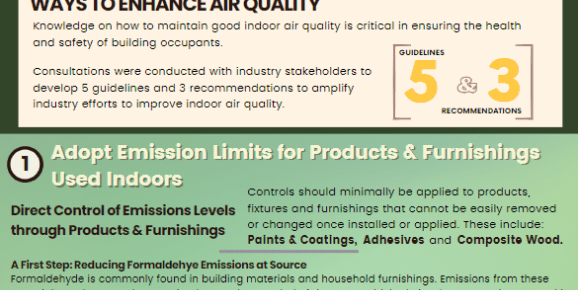Hzinfo, The National Environment Agency (NEA) of Singapore recently announced an important proposal to completely ban the sale of indoor coatings containing formaldehyde from July 1, 2025. Once this proposal takes effect, it will stipulate that only indoor coatings that do not add formaldehyde are allowed to be sold in the Singapore market.
According to NEA’s recommendation, relevant companies must be tested by an official authoritative organization recognized by the International Laboratory Accreditation Cooperation Mutual Recognition Arrangement (ILAC MRA) and submit a formaldehyde test report to NEA, proving that the total formaldehyde content in their product cans is less than 0.01% w/w.
In addition, the proposal also points out that as long as the coating formula remains unchanged, the test report will remain valid. For companies producing or importing indoor coatings containing formaldehyde, if they plan to export or re export their products, they must apply for a Hazardous Substance (HS) license from NEA. It is worth mentioning that this requirement does not apply to companies selling industrial paints in Singapore. Such coatings need to be labeled to inform consumers that they contain formaldehyde and are only used for industrial or outdoor purposes, not indoors. The relevant consulting work plan will start on November 22, 2023 and end on December 13, 2023. NEA encourages all relevant parties to actively participate and provide feedback.
As early as January this year, the Singapore Sustainable Space Action Alliance launched the Industry Guidelines for Indoor Air Quality among the public, aimed at encouraging indoor space material manufacturers and users to limit formaldehyde emissions to improve indoor air quality.

The “Industry Guidelines for Indoor Air Quality” propose suggestions, and the industry calls on the government to regulate formaldehyde emissions from indoor products and furniture. Before selling products, enterprises must submit test reports for certification, and after selling products, they must also attach certification that complies with emission restrictions.
In addition, the industry guidelines also include content in five areas:
Manufacturers and users of indoor space materials should establish emission restrictions for indoor products and decorations;
Adopting the Singapore Indoor Air Standards Code;
Applying for certification to demonstrate contributions to improving air quality;
Implement workplace safety and hygiene guidelines;
Monitor indoor air quality and take mitigation measures.






